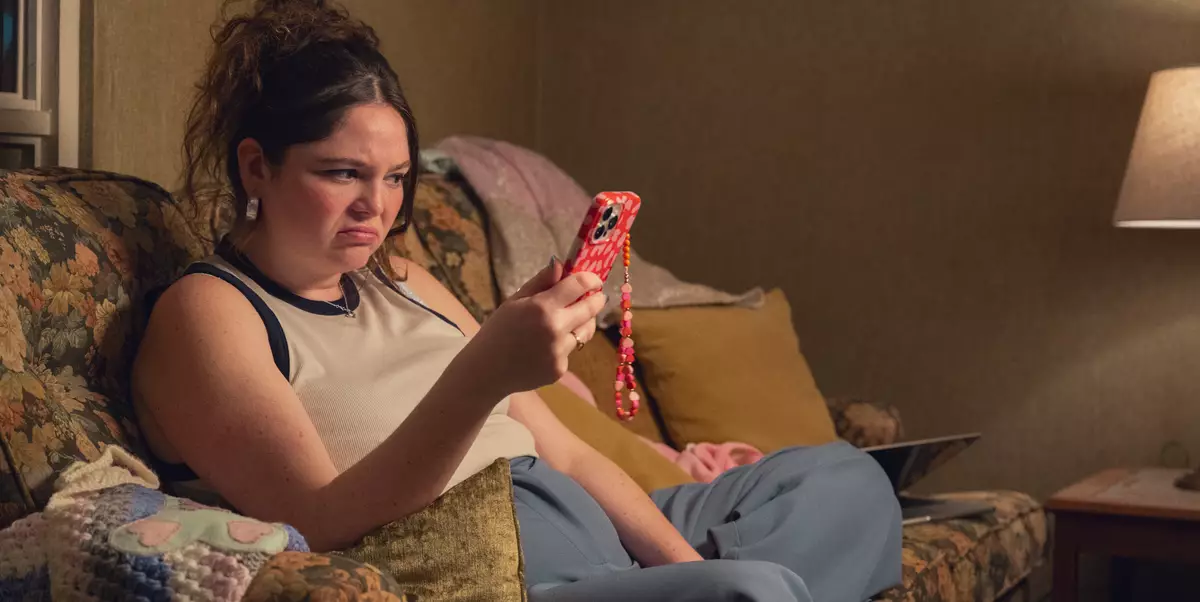The conclusion of season one of “Too Much” leaves viewers in a whirl of anticipation, having witnessed Jess and Felix’s whirlwind courthouse wedding—an event that feels both impulsive and ripe with potential. However, ending on this note of union is merely the opening act of a far more intricate love story. Creator Lena Dunham’s comments suggest that the series is poised to pivot from charming meet-cutes to an exploration of the nuances, struggles, and profound revelations that marriage entails. This transition from romantic comedy to a more layered narrative is essential; it signifies a willingness to confront the realities couples face once the initial spark dims and the daily grind takes over.
Dunham’s assertion that “marriage is not the end of a love story” is refreshing and courageous. It challenges the conventional trope that marriage signifies ultimate fulfillment or resolution. Instead, it hints at an ongoing negotiation—one that tests the resilience, patience, and self-awareness of both Jess and Felix. If “Too Much” ventures into this territory, it could carve a new path for romantic series—one that embodies honesty over superficiality and maturity over cliches. A show that examines marriage’s emotional jaggedness, rather than glossing over it, would be a bold contribution to television’s evolving landscape.
Uncertain but Hopeful: The Industry and Cast’s Perspectives
While Netflix has yet to officially renew “Too Much,” the enthusiasm among the cast and creators signals a shared belief that there is more to explore. Megan Stalter’s excitement about the plot’s future underscores how much she views Jess and Felix’s marriage as the beginning of their true journey. Her sentiment—that the ending leaves questions rather than answers—implies a desire to delve deeper into the characters’ evolving identities and relationships. Similarly, Lena Dunham’s hopefulness, tempered by industry realities, embodies a complexity often overlooked in television production. She acknowledges the fame and influence of network negotiations, recognizing that creative visions must often be balanced against the logistics and commercial considerations of a streaming platform like Netflix.
What makes this potential for continuation compelling is the fertile ground established within the first season. Jess and Felix are not perfect characters; they embody vulnerability, insecurity, and humor—all wrapped into imperfect but relatable human beings. Their experiences with love, heartbreak, and personal growth suggest that any further development will have to grapple with their unresolved past baggage, making their journey authentic and compelling.
The Promise of a More Realistic Love Story
Dunham’s desire to shift the narrative from “meet cute” to post-marriage realities reflects a broader cultural shift in storytelling. Modern audiences increasingly crave authenticity over idealized romance. The premise of a “bumbling” yet sincere couple navigating the complexities of marriage is ripe for rich, honest storytelling. By highlighting that marriage is “an incredibly complicated negotiation,” the series can become a mirror to viewers facing similar struggles, fostering empathy and understanding.
If season two materializes, it will likely confront themes that are rarely explored with such rawness—such as communication breakdowns, evolving expectations, and the vulnerability required to truly commit. The show could also elevate its cultural relevance by portraying diverse experiences through casting choices and storytelling. For example, the inclusion of actors like Naomi Watts or Rhea Perlman signals an interest in broadening female and generational narratives, adding layers of richness to the story.
By embracing its imperfections and spotlighting the messy, unpredictable, and often hilarious realities of marriage, “Too Much” could evolve from a light-hearted comedy into a nuanced exploration of what it means to truly love and commit. This honest portrayal would resonate deeply in a time when societal conversations about relationships, mental health, and self-discovery are more vital than ever. If the series seizes this opportunity, it could redefine what a romantic comedy can be: a vehicle for frank dialogue and emotional truth.

